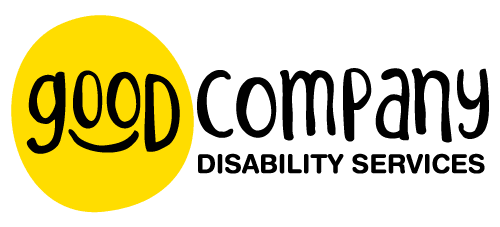Incident Management Policy
Effective Date: 27 May 2025
Last Updated: 27 May 2025
Policy Statement
Good Company Disability Services Pty Ltd is committed to delivering a safe and responsive environment for all participants, staff, and stakeholders. We maintain a robust incident management system that supports immediate action, transparent reporting, and continuous improvement. This policy ensures that all incidents—including reportable incidents under the NDIS framework—are managed with care, accountability, and compliance with the NDIS (Incident Management and Reportable Incidents) Rules 2018 and the NDIS Practice Standards.
Purpose
This policy sets out how we identify, respond to, manage, and report incidents. It aims to:
-
Protect participants and uphold their rights
-
Ensure all incidents are documented, reviewed, and addressed
-
Comply with NDIS and legal requirements
-
Promote a culture of safety, learning, and accountability
Scope
This policy applies to:
-
All participants supported by Good Company, including NDIS participants
-
All staff, contractors, board members, and volunteers
-
All environments where we provide services or interact with participants
Definitions
-
Incident: Any act, omission, event, or circumstance that has or could have caused harm to a person, or violates a participant’s rights
-
Near Miss: An event that could have caused harm but did not
-
Reportable Incident: An incident that meets the criteria under the NDIS Rules and must be reported to the NDIS Commission
-
Restrictive Practice: Any intervention or practice that restricts the rights or freedom of movement of a person with disability (must be authorised and reported)
-
Investigation: An internal review process to understand the causes of an incident and improve safety
-
Participant: Any person receiving support from Good Company, including through the NDIS
Types of Incidents
Incidents include (but are not limited to):
-
Injury or harm to a participant or staff member
-
Abuse, assault, neglect, or exploitation
-
Unlawful or inappropriate use of restrictive practices
-
Threats, self-harm, or suicide attempts
-
Breaches of privacy, dignity, or human rights
-
Property damage or unauthorised access
-
Near misses with potential for harm
Reportable Incidents
As required by the NDIS (Incident Management and Reportable Incidents) Rules 2018, we must notify the NDIS Quality and Safeguards Commission of:
-
The death of a participant
-
Serious injury of a participant
-
Abuse or neglect of a participant
-
Unlawful sexual or physical contact with or assault of a participant
-
Sexual misconduct against or in the presence of a participant
-
Use of unauthorised restrictive practices
Timeframes:
-
Within 24 hours: Initial report of most reportable incidents
-
Within 5 business days: Lower-risk restrictive practice events
-
As updates occur: Follow-up reviews and outcomes must be submitted
Responsibilities
All Staff, Volunteers, and Contractors:
-
Take immediate action to protect any person involved
-
Notify a supervisor or manager immediately
-
Complete the Incident Report Form within 24 hours
-
Cooperate with investigations
Supervisors and Managers:
-
Confirm participant safety
-
Assess whether the incident is reportable
-
Coordinate immediate response and support
-
Notify guardians, family, or support persons as appropriate
-
Submit reports to the NDIS Commission (if applicable)
-
Ensure proper documentation and investigation
Executive Management:
-
Monitor compliance with NDIS reporting rules
-
Ensure fair and prompt investigations
-
Review incident trends and report to the Board
-
Implement systemic improvements and risk controls
Immediate Response Steps
-
Ensure safety first
-
Call emergency services (000) if urgent
-
Provide first aid or medical support
-
Secure the area or preserve evidence if required
-
Inform an on-call supervisor or manager without delay
-
Complete the Incident Report Form as soon as practical (within 24 hours)
Investigation and Review
Incidents may trigger an investigation depending on their severity or frequency. Investigations aim to:
-
Identify the cause(s) of the incident
-
Determine if procedures were followed
-
Assess risk and prevent recurrence
-
Involve participants or guardians where appropriate
Investigations are impartial, confidential, and documented. Participants will be supported throughout.
Confidentiality and Record Keeping
All incidents are recorded in our secure system and retained in accordance with privacy legislation. Records include:
-
Description of the event
-
Names of persons involved
-
Immediate actions and outcomes
-
Any reports to external authorities
-
Follow-up or systemic actions taken
This practice complies with the Privacy Act 1988 (Cth) and the NDIS Practice Standards on the date noted as effective date on this policy.
Reporting by Participants and Families
We encourage participants, families, and representatives to report concerns. You can:
-
Speak to any staff member
-
Submit an anonymous complaint
-
Use an advocate to assist you
We will take every report seriously and follow up appropriately.
Cultural and Trauma-Informed Response
We are committed to providing a culturally safe, inclusive, and trauma-aware approach. This includes:
-
Respecting cultural practices and communication needs
-
Offering appropriate support to Aboriginal and Torres Strait Islander participants
-
Providing access to interpreters, cultural consultants, or advocates as needed
-
Responding with empathy and without blame
Notifying External Authorities
Depending on the nature of the incident, we may also be required to notify:
-
Police (e.g. criminal conduct or assault)
-
Child Protection or relevant guardianship authorities
-
Relevant Government Agencies and Emergency Services (in the case of a death)
-
Emergency services (ambulance, fire)
We will inform participants and families unless restricted by law.
Staff Training and Awareness
All workers receive training on:
-
Recognising and reporting incidents
-
Responding to immediate risks
-
Using incident report tools and systems
-
NDIS reporting timeframes and legal duties
Refresher training occurs annually and during onboarding.
Continuous Improvement and Systemic Analysis
We regularly review incident data to:
-
Identify trends or patterns
-
Evaluate response times and adequacy
-
Update policies and training
-
Strengthen preventative measures
A summary of incidents is reviewed annually by management to inform risk management strategies and Board reporting.
Review of Policy
This policy is reviewed annually, or earlier if:
-
There is a change in legislation
-
Serious incidents reveal gaps in procedure
-
Requested by the NDIS Commission or other authority
Contact Us
If you have any questions or concerns about incident management or would like to report an incident:
Good Company Disability Services Pty Ltd
📧 Email: he***@***************om.au
🌐 Website: www.goodcompanyds.com.au
📞 Perth Office: (08) 9334 6995
📞 Melbourne Office: (03) 9069 7866

